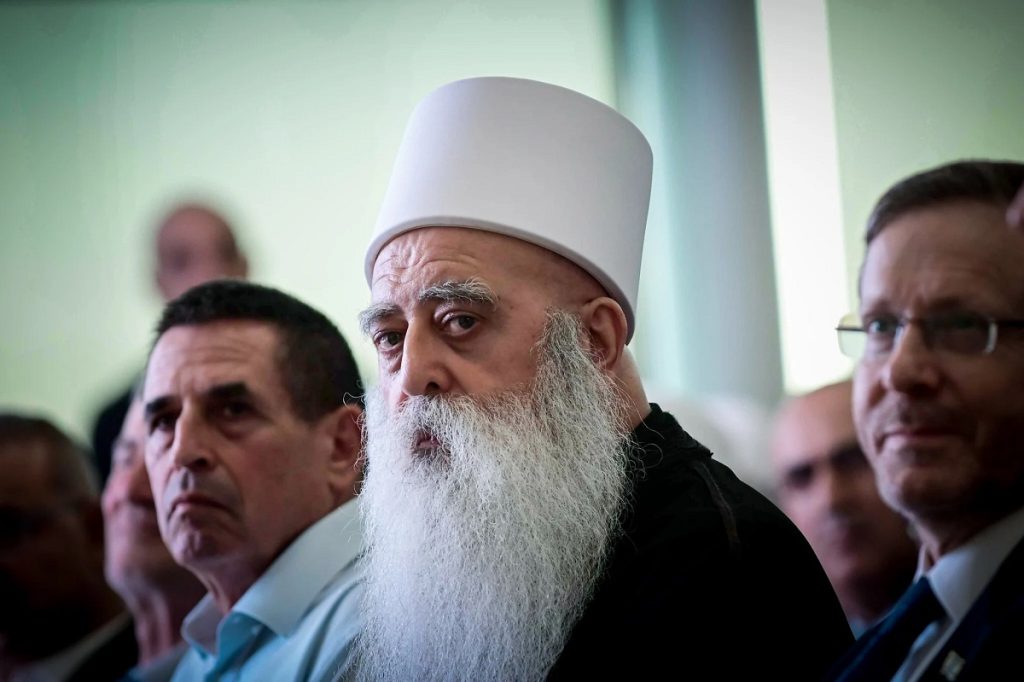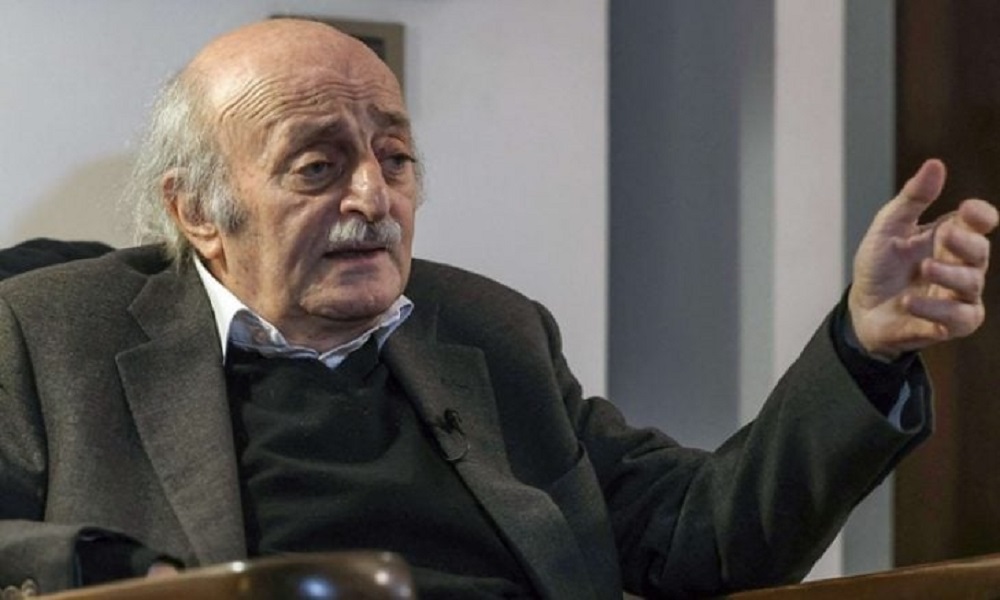Watan-Lebanese Druze leader Walid Jumblatt accused Israel of attempting to win over the Druze minority in Syria as part of a broader plan aimed at fragmenting the Middle East into sectarian states.
In an interview with AFP, Jumblatt said: “Israel is continuing with its old-new project of dismantling the region into sectarian and religious entities and spreading chaos.”
He added, “They will try—and maybe succeed—in uprooting Gaza, uprooting its people and its stones. Then it will be the turn of the West Bank… They will try to create instability in Syria—not only through the Druze, but also through others,” calling it a “dangerous game.”
After armed factions toppled former president Bashar al-Assad in December, the Israeli army advanced into the demilitarized buffer zone in the Golan Heights, near the area occupied by Israel in the Syrian plateau.

Israel’s Druze Outreach Sparks Tensions Amid Syria Talks
Israel has intensified outreach to Syrian Druze, mainly concentrated in the southern province of Suwayda, by sending humanitarian aid through Israeli Druze. It also allowed several Syrian Druze religious figures to visit Israel on March 15, despite the two countries remaining officially at war.
The Druze community is spread across Lebanon, Israel, the occupied Golan, and Syria.
In early March, after clashes erupted in the predominantly Druze and Christian suburb of Jaramana near Damascus, Israel threatened military intervention if the new Syrian authorities targeted the Druze.
Druze religious leaders expressed their rejection of Israel’s statements, reaffirming their commitment to Syria’s unity.
Their representatives are negotiating with authorities in Damascus to reach an agreement that includes the integration of their armed groups into the Syrian army.
The talks were close to succeeding, but “Israeli pressure” on some parties prevented a final agreement, according to a source close to the negotiations who spoke to AFP on condition of anonymity.
Support for al-Sharaa
Jumblatt recalled that during the French Mandate about a hundred years ago, Syria was “divided into four canton projects: an Alawite state, a Druze state, a state of Aleppo, and a state of Damascus.”
He added, “The Druze were at the forefront of preventing Syria’s partition through the revolution of Sultan Pasha al-Atrash during the Arab revolt,” which thwarted the plan.
Jumblatt expressed hope that Syria—torn apart by years of war into zones of influence—could avoid division, but said this “requires a major international and Arab effort,” stressing that “(transitional president Ahmad) al-Sharaa should be supported.”
Jumblatt was the first Lebanese political leader to visit Syria in December, where he met Ahmad al-Sharaa, who assured him that Syria would not be a source of “negative interference” in Lebanon.
Under the Assad family’s rule, Syrian authorities were accused of destabilizing Lebanon and orchestrating the assassination of several Lebanese officials, including Jumblatt’s father, Kamal Jumblatt—the founder of the Progressive Socialist Party—who was killed in 1977 during Lebanon’s civil war after opposing the Syrian army’s entry into Lebanon.
Bloody War
When asked about the arrest of Ibrahim Hawija—the former head of Syrian Air Force Intelligence under Hafez al-Assad and accused of killing his father—Jumblatt said he does not intend to request his extradition.
Hawija was arrested by Syrian security forces on March 6 in western Syria.
“He is one of the major criminals… responsible for my father’s death, and perhaps for the deaths of other Lebanese figures… He’s on trial now, and he’s also accountable for crimes against the Syrian people, like others,” said Jumblatt.
The veteran Druze leader, who has played a pivotal role in Lebanese politics for nearly 45 years, also stated that Lebanese authorities have been under pressure since the end of the bloody war between Iran-backed Hezbollah and Israel.
Jumblatt pointed to U.S. “pressure” on Lebanon to normalize relations with Israel, which he opposes, along with President Joseph Aoun and Prime Minister Nawaf Salam.
He said Washington “won’t provide aid to the Lebanese army” unless Hezbollah is disarmed.
Lebanon recently emerged from a devastating war between Hezbollah and Israel, which ended with a U.S.-brokered ceasefire on November 27.
